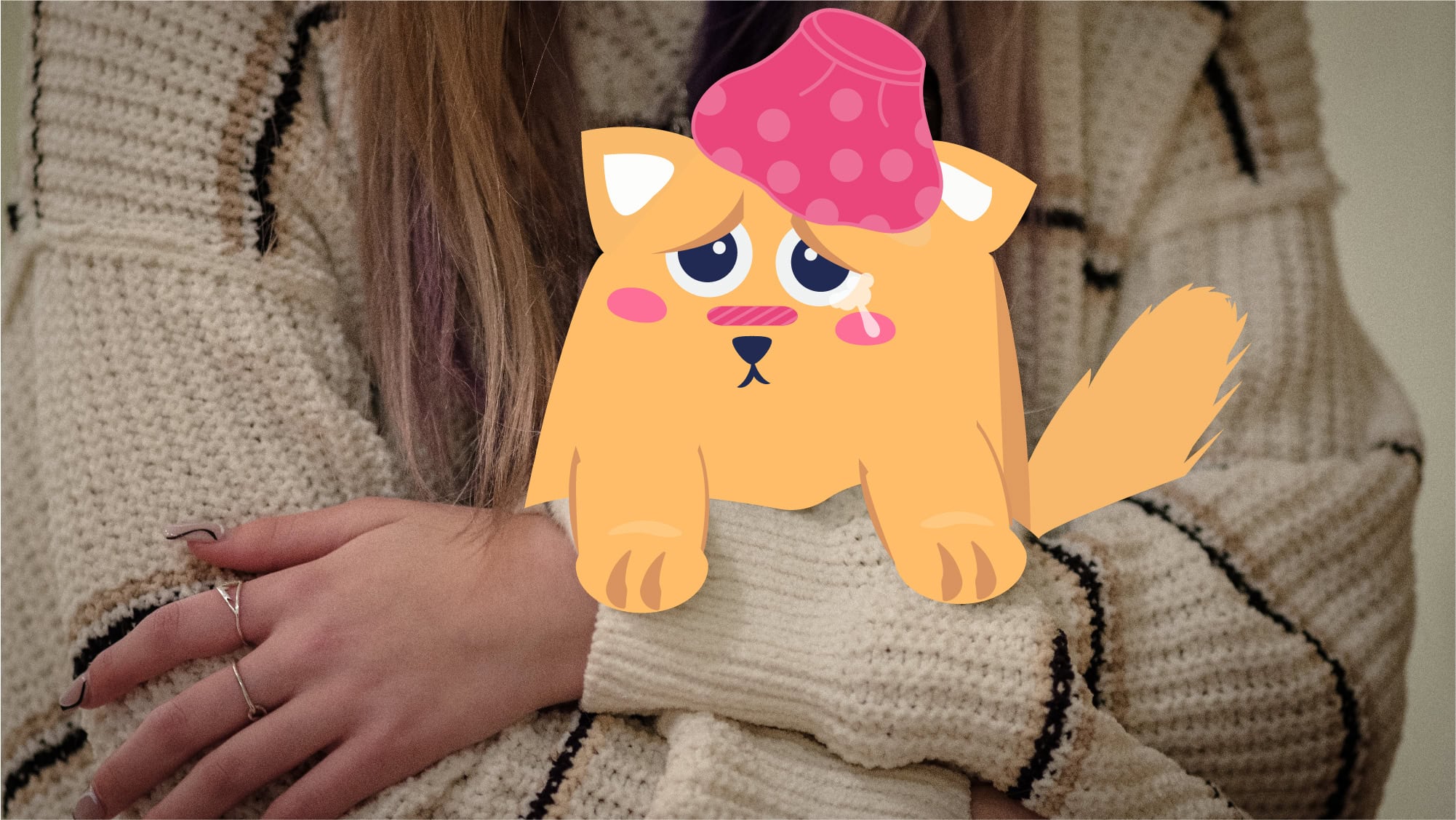Have you ever wondered if your cat’s sneezing was normal or whether they are becoming sick with a common cat disease?
As a one-off occurrence yes, but repeated sneezing, especially in combination with the symptoms mentioned below could be a sign of a condition called cat flu.
What is Cat Flu?
Cat flu is similar to a flu infection in people. Most cats will at some point encounter the viruses responsible for causing flu-like symptoms. It can be mild or severe, but there are ways we can help bring relief to our feline friends and make them more comfortable.
What Causes Cat Flu?
The cat flu can be caused by a few different types of viruses, namely herpes virus, and calicivirus. When an infection is severe, there can also be a secondary bacterial infection making your cat feel worse. The viruses that cause cat flu are highly transmissible between cats.
So, cats can become infected easily, even after a small window of exposure to an infected cat. These viruses can be picked up in the environment from contact with viral material found on toys, bedding, or food bowls.
Signs & Symptoms of Feline Flu
Cat flu can be diagnosed by a veterinarian based on an exam and the history of symptoms. Its symptoms can be mild or more pronounced and include:
- Sneezing
- Clear discharge from one or both nostrils
- Watery tears or clear discharge around the eyes
- Reduced energy levels
- Sleeping more than normal
If this infection is more severe and secondary bacterial infection is present, other signs you may notice are:
- Decreased appetite
- Lethargy
- Green or yellow discharge at the nose
- Green or yellow discharge around the eyes
- Sneezing or coughing
- Weight loss
Cat Flu Treatment Options
Treatment options for cat flu vary depending on the severity of the illness. Anti-inflammatories and anti-viral medications may be prescribed, along with antibiotics for secondary bacterial infections. Eye drops can help with eye infections. In addition to medications, in-home care plays a crucial role in the treatment process.
Here are some ways you can help alleviate cat flu symptoms:
- Clean discharge from the eyes and nose with a warm damp cloth twice a day, using treats or wet food as a distraction.
- Use steam to soothe airways by placing your cat in a steamed-up room for ten minutes, up to three times a day.
- Encourage appetite by offering smelly foods or gently warming wet food. Sit with your cat during meals and provide praise and affection.
- Spend time gently brushing your cat for bonding and to make them feel better.
- Keep your cat indoors to allow for rest and recovery while fighting the infection.
Conclusion
Cat flu is a common, but treatable condition frequently seen in young kittens and stray cats. The severity of signs and length of illness varies but some good old-fashioned TLC can make a huge difference to how your cat feels during the course of their illness. If you are unsure if your cat needs extra medications to bring relief to symptoms, talk to the veterinarian for guidance.
Frequently Asked Questions
Is cat flu contagious to people?
No, cat flu is not contagious to people or dogs. It is however contagious to other cats so good hygiene and separation of cats are needed if one of your cats has cat flu.
Are all cats susceptible to cat flu?
Cat flu is a viral disease. This means that younger, unvaccinated, or rescue kittens and older, or immune-compromised cats are more likely to get cat flu. These groups of cats have weaker immune systems and struggle to fight off the virus. While most common in kittens, any age, breed, and sex of a cat can be affected.
Cats who have been vaccinated for herpes and calicivirus can still get clinical signs of cat flu, but often a much milder form of the illness.
Can cat flu be prevented?
The standard cat vaccines are helpful in preventing or reducing the severity of cat flu. However, just like with the flu shot in people, our cats can still become sick even after being vaccinated, but the hope is that their symptoms will be milder.
Can my cat get cat flu more than once?
Yes, viruses like the herpes virus remain dormant and can resurface if your cat becomes stressed or ill from another condition.
What are the survival rates for cat flu?
The outcomes for cat flu treatment are usually excellent. Healing time can take between 2-6 weeks depending on how sick your cat is, but most cats make a full recovery from the infection.
Unfortunately, some cats with severe symptoms may have permanent blindness from eye ulceration and need to have an enucleation to remove the non-visual eye.





